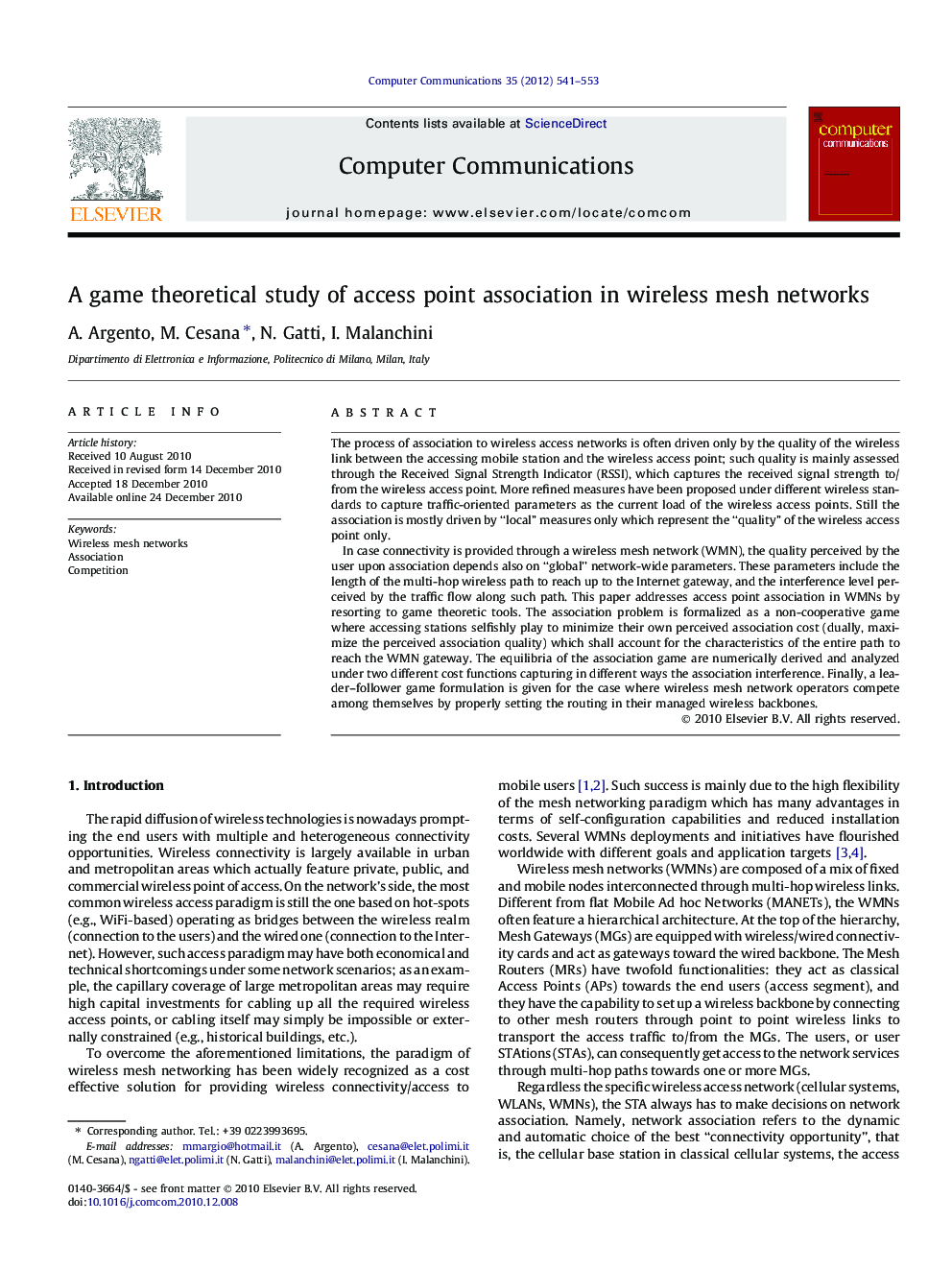| Article ID | Journal | Published Year | Pages | File Type |
|---|---|---|---|---|
| 450095 | Computer Communications | 2012 | 13 Pages |
The process of association to wireless access networks is often driven only by the quality of the wireless link between the accessing mobile station and the wireless access point; such quality is mainly assessed through the Received Signal Strength Indicator (RSSI), which captures the received signal strength to/from the wireless access point. More refined measures have been proposed under different wireless standards to capture traffic-oriented parameters as the current load of the wireless access points. Still the association is mostly driven by “local” measures only which represent the “quality” of the wireless access point only.In case connectivity is provided through a wireless mesh network (WMN), the quality perceived by the user upon association depends also on “global” network-wide parameters. These parameters include the length of the multi-hop wireless path to reach up to the Internet gateway, and the interference level perceived by the traffic flow along such path. This paper addresses access point association in WMNs by resorting to game theoretic tools. The association problem is formalized as a non-cooperative game where accessing stations selfishly play to minimize their own perceived association cost (dually, maximize the perceived association quality) which shall account for the characteristics of the entire path to reach the WMN gateway. The equilibria of the association game are numerically derived and analyzed under two different cost functions capturing in different ways the association interference. Finally, a leader–follower game formulation is given for the case where wireless mesh network operators compete among themselves by properly setting the routing in their managed wireless backbones.
